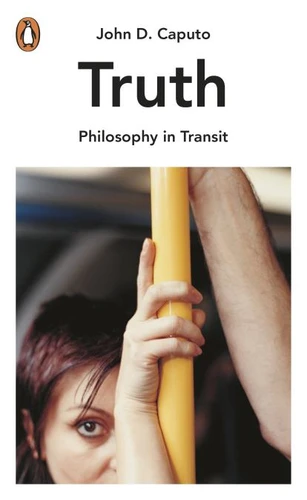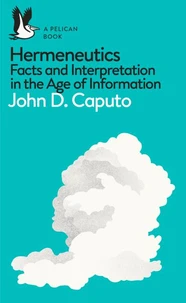Truth. Philosophy in Transit
Par :Formats :
Disponible dans votre compte client Decitre ou Furet du Nord dès validation de votre commande. Le format ePub protégé est :
- Compatible avec une lecture sur My Vivlio (smartphone, tablette, ordinateur)
- Compatible avec une lecture sur liseuses Vivlio
- Pour les liseuses autres que Vivlio, vous devez utiliser le logiciel Adobe Digital Edition. Non compatible avec la lecture sur les liseuses Kindle, Remarkable et Sony
- Non compatible avec un achat hors France métropolitaine
 , qui est-ce ?
, qui est-ce ?Notre partenaire de plateforme de lecture numérique où vous retrouverez l'ensemble de vos ebooks gratuitement
Pour en savoir plus sur nos ebooks, consultez notre aide en ligne ici
- Nombre de pages304
- FormatePub
- ISBN978-0-241-96088-2
- EAN9780241960882
- Date de parution26/09/2013
- Protection num.Adobe DRM
- Infos supplémentairesepub
- ÉditeurPENGUIN
Résumé
In the first in a new series of easily digestible, commute-lengthbooks of original philosophy, renowned thinker John D. Caputo explores the many notions of 'truth', and what it really meansRiding to work in the morning has has become commonplace. We ride everywhere. Physicians and public health officials plead with us to get out and walk, to get some exercise. People used to live within walking distance to the fields in which they worked, or they worked in shops attached to their homes.
Now we ride to work, and nearly everywhere else. Which may seem an innocent enough point, and certainly not one on which we require instruction from the philosophers. But, truth be told, it has in fact precipitated a crisis in our understanding of truth. Arguing that our transportation technologies are not merely transient phenomena but the vehicle for an important metaphor about postmodernism, or even constitutive of postmodernism, John D.
Caputo explores the problems posited by the way in which science, ethics, politics, art and religion all claim to offer us (the) "truth", defending throughout a "postmodern", or "hermeneutic" theory of truth, and posits his own surprising theory of the many notions of truth. John D. Caputo is a specialist in contemporary hermeneutics and deconstruction with a special interest in religion in the postmodern condition.
The Thomas J. Watson Professor of Religion Emeritus at Syracuse University and the David R. Cook Professor of Philosophy Emeritus at Villanova University, he has spearheaded an idea he calls weak theology.
Now we ride to work, and nearly everywhere else. Which may seem an innocent enough point, and certainly not one on which we require instruction from the philosophers. But, truth be told, it has in fact precipitated a crisis in our understanding of truth. Arguing that our transportation technologies are not merely transient phenomena but the vehicle for an important metaphor about postmodernism, or even constitutive of postmodernism, John D.
Caputo explores the problems posited by the way in which science, ethics, politics, art and religion all claim to offer us (the) "truth", defending throughout a "postmodern", or "hermeneutic" theory of truth, and posits his own surprising theory of the many notions of truth. John D. Caputo is a specialist in contemporary hermeneutics and deconstruction with a special interest in religion in the postmodern condition.
The Thomas J. Watson Professor of Religion Emeritus at Syracuse University and the David R. Cook Professor of Philosophy Emeritus at Villanova University, he has spearheaded an idea he calls weak theology.
In the first in a new series of easily digestible, commute-lengthbooks of original philosophy, renowned thinker John D. Caputo explores the many notions of 'truth', and what it really meansRiding to work in the morning has has become commonplace. We ride everywhere. Physicians and public health officials plead with us to get out and walk, to get some exercise. People used to live within walking distance to the fields in which they worked, or they worked in shops attached to their homes.
Now we ride to work, and nearly everywhere else. Which may seem an innocent enough point, and certainly not one on which we require instruction from the philosophers. But, truth be told, it has in fact precipitated a crisis in our understanding of truth. Arguing that our transportation technologies are not merely transient phenomena but the vehicle for an important metaphor about postmodernism, or even constitutive of postmodernism, John D.
Caputo explores the problems posited by the way in which science, ethics, politics, art and religion all claim to offer us (the) "truth", defending throughout a "postmodern", or "hermeneutic" theory of truth, and posits his own surprising theory of the many notions of truth. John D. Caputo is a specialist in contemporary hermeneutics and deconstruction with a special interest in religion in the postmodern condition.
The Thomas J. Watson Professor of Religion Emeritus at Syracuse University and the David R. Cook Professor of Philosophy Emeritus at Villanova University, he has spearheaded an idea he calls weak theology.
Now we ride to work, and nearly everywhere else. Which may seem an innocent enough point, and certainly not one on which we require instruction from the philosophers. But, truth be told, it has in fact precipitated a crisis in our understanding of truth. Arguing that our transportation technologies are not merely transient phenomena but the vehicle for an important metaphor about postmodernism, or even constitutive of postmodernism, John D.
Caputo explores the problems posited by the way in which science, ethics, politics, art and religion all claim to offer us (the) "truth", defending throughout a "postmodern", or "hermeneutic" theory of truth, and posits his own surprising theory of the many notions of truth. John D. Caputo is a specialist in contemporary hermeneutics and deconstruction with a special interest in religion in the postmodern condition.
The Thomas J. Watson Professor of Religion Emeritus at Syracuse University and the David R. Cook Professor of Philosophy Emeritus at Villanova University, he has spearheaded an idea he calls weak theology.






